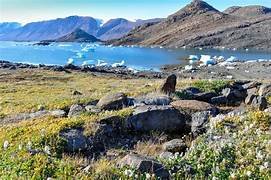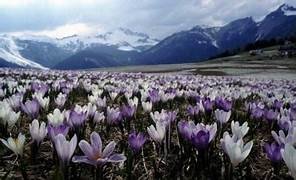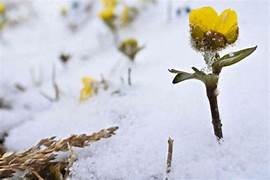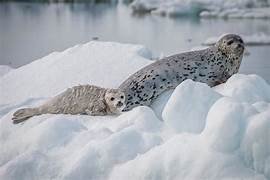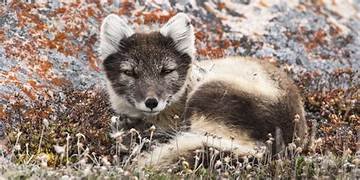Introduction
It was brought to my attention this week that the Arctic is seeing some new plant growth. In fact, the Arctic, a vast and remote region at the northernmost tip of our planet, may appear desolate and lifeless at first glance. Its frigid temperatures, icy landscapes, and seemingly barren expanses make it a challenging environment for most species. However, beneath its icy exterior lies a surprisingly rich tapestry of biodiversity. In this blog post, we'll delve into the incredible world of Arctic biodiversity, exploring the unique species that call this frozen wilderness home and the vital role they play in the global ecosystem.
The Arctic Ecosystem
The Arctic ecosystem is a dynamic web of life, intricately interconnected to withstand the extreme conditions of this polar region. Its biodiversity includes a wide range of organisms, from microscopic bacteria to the charismatic polar bear, each adapted to survive in the harshest of environments.
1. Marine Life: The Arctic Ocean, although covered by ice for much of the year, teems with life. Beluga whales, narwhals, seals, and a variety of fish species navigate its icy waters. These marine creatures have developed remarkable adaptations to thrive in the cold, such as layers of blubber for insulation and special enzymes that prevent their blood from freezing.
2. Avian Wonders: The Arctic is a crucial breeding ground for countless bird species. Birds like the iconic Arctic tern embark on remarkable migrations, covering thousands of miles between their Arctic breeding grounds and warmer wintering areas. Other Arctic birds include the snowy owl, ptarmigan, and various species of gulls and auks.
3. Terrestrial Life: While the Arctic tundra may seem stark, it is home to a surprising variety of life forms. Mosses, lichens, and hardy grasses carpet the ground, providing food for herbivores like caribou and muskoxen. The Arctic fox, Arctic hare, and lemming are some of the mammals that have adapted to life on the tundra.
4. Microbial Marvels: Beneath the frozen landscape, microorganisms are thriving in unique environments, such as permafrost and under ice sheets. These microorganisms play a crucial role in nutrient cycling, influencing the entire Arctic ecosystem.
Biodiversity's Role in the Arctic
The biodiversity of the Arctic isn't just a testament to nature's resilience; it also plays a significant role in the global ecosystem.
1. Climate Regulation: Arctic ice and the reflective properties of snow help regulate the Earth's temperature by reflecting sunlight back into space. As this ice melts due to climate change, it can lead to further warming, making Arctic biodiversity a key player in regulating global climate.
2. Carbon Storage: Arctic ecosystems, particularly the permafrost, store vast amounts of carbon. If thawed, this carbon could be released into the atmosphere, exacerbating climate change. Preserving Arctic biodiversity is crucial to maintaining this carbon storage.
3. Global Connectivity: Many Arctic species are migratory, travelling to and from the Arctic each year. This connectivity helps to distribute nutrients and energy across the globe, influencing ecosystems far beyond the Arctic Circle.
Conservation Challenges
Despite its importance, the Arctic ecosystem faces numerous challenges, primarily driven by climate change and human activities. Melting ice, oil and gas extraction, shipping, and pollution threaten the delicate balance of Arctic biodiversity.
Conservation efforts are underway to protect this unique environment, including establishing marine reserves, regulating shipping routes, and monitoring the health of key species like polar bears. Global initiatives like the Paris Agreement aim to mitigate climate change, which could have a profound impact on the Arctic.
Conclusion
The Arctic is a region of stunning natural beauty and incredible biodiversity, defying the notion that life cannot thrive in extreme conditions. As the world faces the challenges of climate change, it is more crucial than ever to protect and preserve this fragile ecosystem. By understanding and valuing the biodiversity of the Arctic, we can work towards a more sustainable future for this frozen frontier and our planet as a whole.

